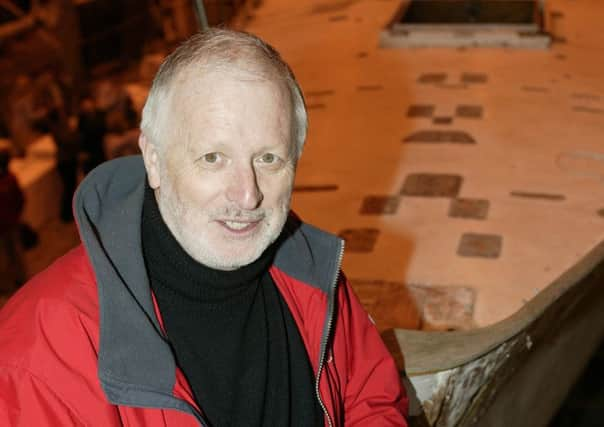Paul Gelder – a gentle giant in journalism
This article contains affiliate links. We may earn a small commission on items purchased through this article, but that does not affect our editorial judgement.


He took over as Editor of the West Sussex Gazette in 1986 and with a close team of loyal staff and contributors went on to develop the Gazette into a must-read siren for regional news and views across the county. He had a knack for impeccable timing. In 1987, he launched a Countryside Campaign on the eve of the Great Storm that claimed 22 lives and destroyed woodlands right across the South East.
The paper led coverage of the devastation and restoration of the countryside that followed, with Paul and the late Lavinia, Duchess of Norfolk setting examples by planting trees at every opportunity to promote the campaign.
Advertisement
Hide AdAdvertisement
Hide AdBorn in Islington in 1947 to a teacher and nursing sister, it was his father that gave Paul his interest in journalism, for Bill Gelder complemented his work schooling disabled children with his role as TV and Theatre critic for the Barnett Press newspaper.
Paul graduated from Harlow College of Journalism to work at the Barnett Press and was soon promoted to Editor. Then married with a young child, he took up sailing as a family recreation, buying a small American catboat, which they kept in Bosham.
It was the draw of sailing in Chichester Harbour that led Paul to move out of London in 1984 to take up the job first as chief sub-editor of WSG’s sister paper, the Chichester Observer Series.
And it was the pull of the sea that eventually enticed him away from the Gazette in 1990 to become Features Editor of Yachting Monthly magazine.
Advertisement
Hide AdAdvertisement
Hide AdAt his interview, the Editor told him that there would be little chance of travel but Paul developed the job to one that encompassed the Globe.
His first big break came with a chance meeting with Robin Knox-Johnston, the first man to sail solo non-stop around the world. The great man had just completed a solo crossing of the Atlantic to prove the accuracy of navigation instruments used by Columbus.
On the return voyage, his yacht had been rolled and dismasted and he was looking for crew to sail the refurbished boat back from the Azores. Gelder volunteered and the subsequent story ‘The Sea God and the Scribe’ won him huge plaudits, including the Newcomer of the Year prize in the IPC Magazines Annual Editorial Awards. “It was a very amusing piece.” Sir Robin recalled this week, adding “And we remained good friends ever since.”
Paul used that as a springboard to sign up for Sir Chay Blyth’s British Steel Challenge round the world race, joining the amateur crew of Interspray on the first leg from Southampton to Rio de Janeiro. He continued to follow the race to each port, filing gripping human-interest reports, giving the Magazine’s cruising orientated readership a first insight to the marvels and dangers of sailing the Southern Seas.
Advertisement
Hide AdAdvertisement
Hide AdPaul took over the Editor’s chair in 2002, a tenure that coincided with the Magazine’s 100th anniversary. He came up with the idea of marking this milestone by saving Sir Francis Chichester’s famous yacht Gipsy Moth IV from rotting in a concrete grave at Greenwich.
Working with the UK Sailing Academy in Cowes, they had the boat restored, then gave disadvantaged youngsters from across the UK, the chance of a lifetime to sail her round the world a second time to mark the 40th anniversary of Chichester’s iconic voyage.
Then, during his final year before retirement, he came up with a brilliant series researching what happens when yachts are subjected to extreme circumstances. Paul and his team subjected it to a series of planned catastrophes from running aground, dismasting, rolling it through 360 degrees and sinking it, to learn lessons on how to both avoid and overcome such disasters. The series ended with blowing the boat up to emulate a gas explosion. In each experiment, he had remote cameras inside and out - and sometimes an editorial colleague onboard to tell the full story.
Paul Gelder is survived by his wife Anne and daughter Laura who is also a journalist.
Advertisement
Hide AdAdvertisement
Hide AdHis funeral will be held at 1pm on Monday March 18 at the Oakes Crematorium, Havant.
His family have set up a Cancer Research donation page in Paul’s memory. https://fundraise.cancerresearchuk.org/page/in-loving-memory-of-paul-gelder